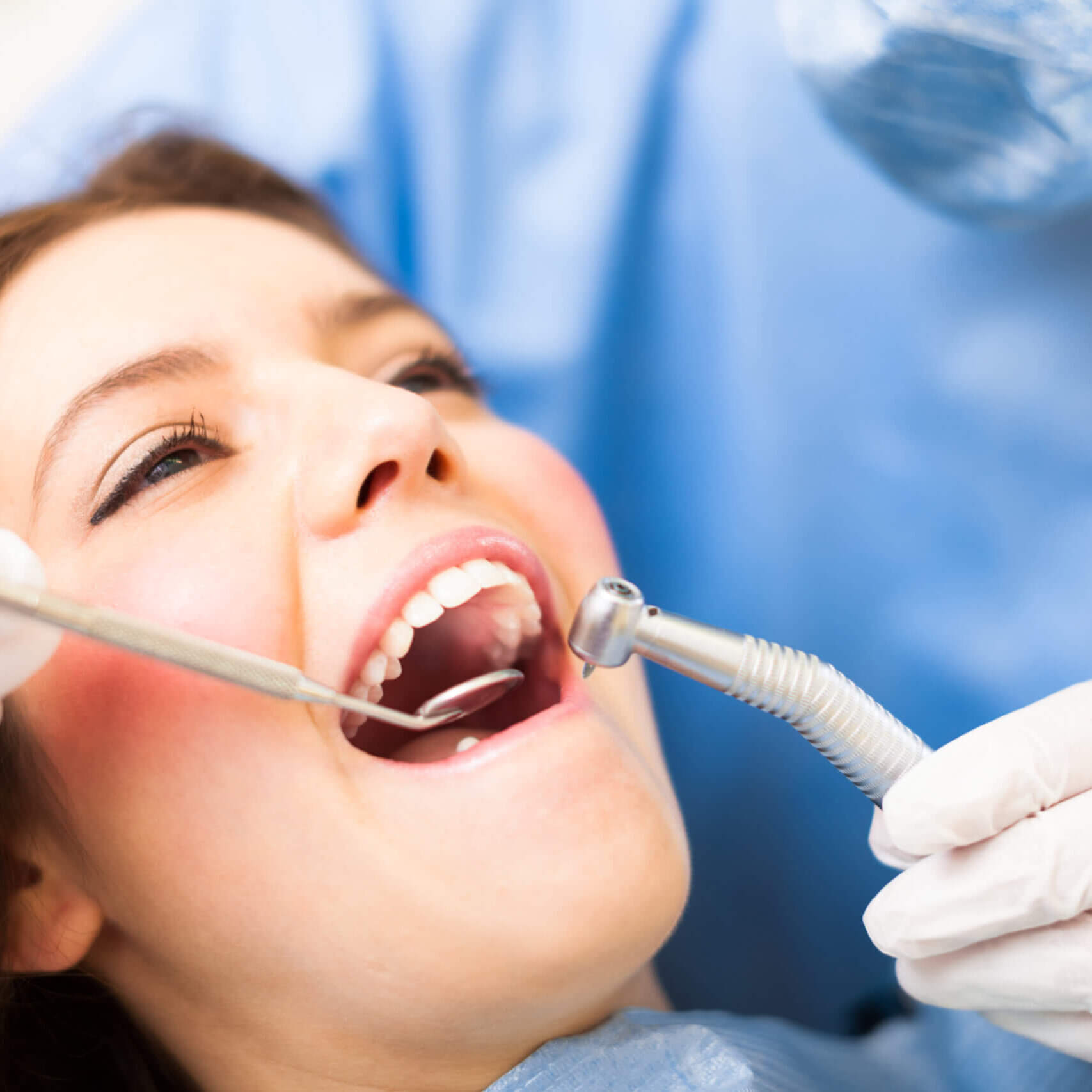
It is estimated 50,000 Americans will be diagnosed with oral or pharyngeal cancer this year. Oral cancer’s mortality is particularly high, not because it is hard to detect or diagnose, but because the cancer is often discovered late in its development. Your family dentist or OMS is in the best position to detect oral cancer during your routine dental examinations.
Perform a Self-Exam Monthly
Everyone should perform an oral cancer self-exam each month. An oral examination is performed using a bright light and a mirror:
- Remove any dentures
- Look and feel inside the lips and the front of gums
- Tilt head back to inspect and feel the roof of your mouth
- Pull the cheek out to see its inside surface as well as the back of the gums
- Pull out your tongue and look at all of its surfaces
- Feel for lumps or enlarged lymph nodes (glands) in both sides of the neck including under the lower jaw.
When performing a self-examination, look for the following:
- White patches of the oral tissues (leukoplakia)
- Red patches (erythroplakia)
- Red and white patches (erythroleukoplakia)
- A sore that fails to heal and bleeds easily
- An abnormal lump or thickening of the tissues of the mouth
- Chronic sore throat or hoarseness
- Difficulty in chewing or swallowing
- A mass or lump in the neck
Your mouth is one of your body’s most important early warning systems. Don’t ignore any suspicious lumps or sores. If you discover something, make an appointment for a prompt examination. Early treatment may well be the key to complete recovery.
Call to Schedule Your Consultation Now
Schedule an appointment today. Don't worry, we'll take care of you like family.
